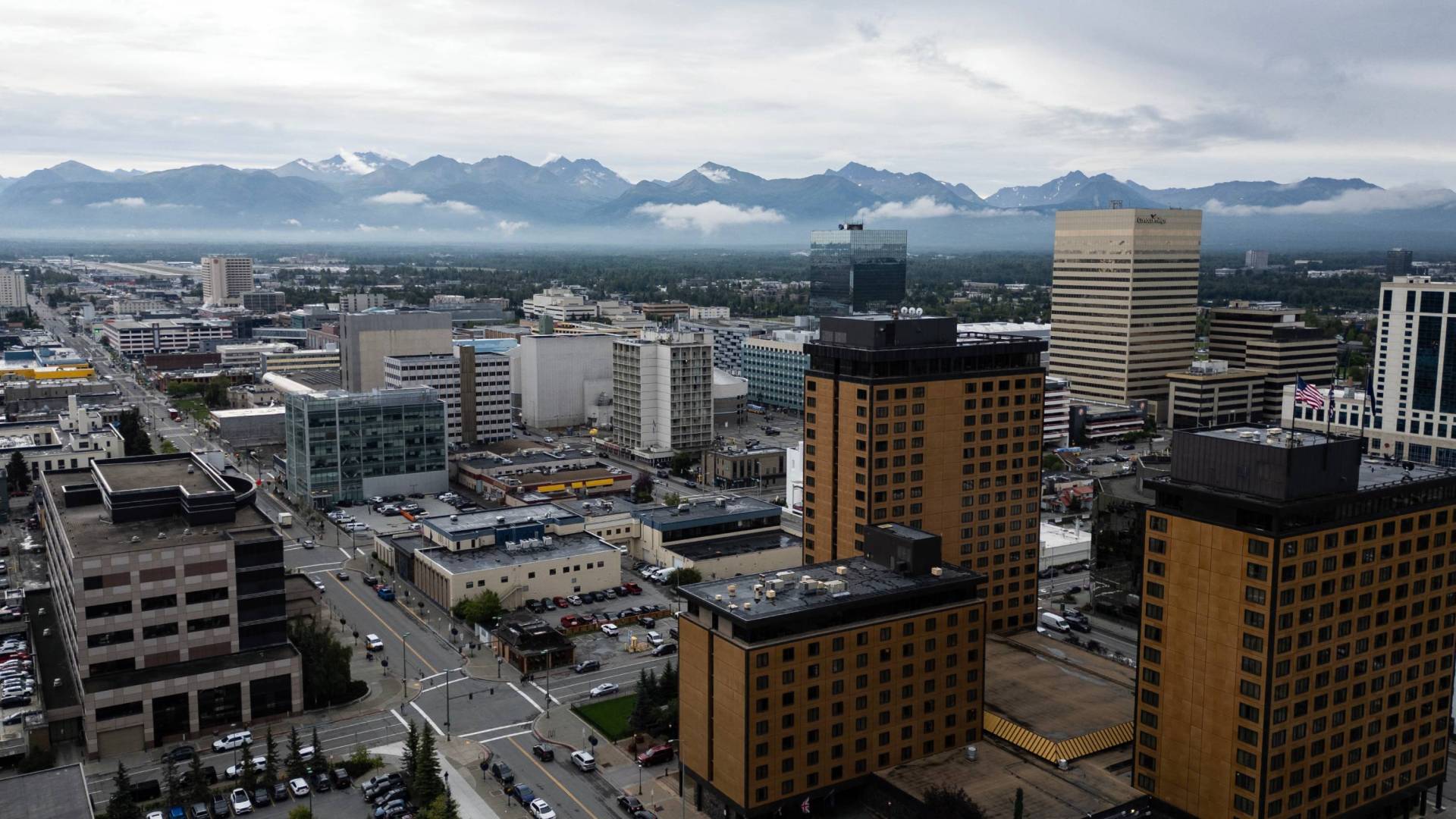About ten miles from where Donald Trump and Vladimir Putin met in Anchorage on Friday, a man speaking at New Chance Church didn’t even have to mention the presidents—or their countries—as he prayed for the ongoing talks.
Instead, he pointed to Jeremiah 17:7–8 (“Blessed is the one who trusts in the Lord …”), before leading about 20 people gathered for the Friday-night youth service in prayer in Russian.
“Only God knows the outcome,” said the speaker—himself a Ukrainian refugee—through a translator. “We do not rely or hope on some personality. … We rely on the Lord because he can do his work through anyone.”
Ukrainian refugees now compose about 60 percent of New Chance Church, alongside Christians of Belarusian, Moldovan, and Uzbek heritage, said pastor Dmitry Vakulich.
The church meets at a rambling Korean Presbyterian building nestled among modest homes in the west Anchorage neighborhood of Spenard. Its changing demographics shape how the church addresses current events, Vakulich told CT on Sunday, at a potluck celebrating New Chance’s 23rd anniversary.
Church attendees pray for Ukraine and for Russia. For the hurt on both sides. For the seemingly impossible hope of unity and peace. They can’t ignore the issue, especially when the world leaders making headlines come to meet on the other side of town.
Across Alaska, Russia’s cultural influence lingers. Christians from Anchorage to Kodiak have rallied to pray for the summit with Putin on Friday, Trump’s White House talks with Ukrainian president Volodymyr Zelensky on Monday, and ongoing diplomatic efforts to end the war in Ukraine.
Russia has historic and geographic ties to Alaska and controlled Alaska Natives’ land until 1867. Many retained their Orthodox faith, and the state now has one of the highest percentages of Orthodox Christians in the US. The Orthodox Church in America recently canonized its first Native Alaskan saint, a Yupik woman.
Ahead of Trump’s summit with Putin, the state’s top Orthodox leader called for a “three day ascent of prayer for peace,” with local churches holding services last week. The archbishop also met with Putin himself, which Ukrainian Orthodox leaders decried as a “betrayal.”
Since Russia launched the war in 2022, an estimated 1,000 Ukrainian refugees have resettled in Alaska, according to the state’s Catholic Social Services. Some joined churches such as New Chance Church in Anchorage and Word of Life Alaska in Delta Junction, a farming community near Fairbanks.
The Ukrainian, Russian, and Moldovan Christians at Word of Life began fasting and praying as soon as the war began. After Trump announced plans to hold the summit with Putin in Alaska, Word of Life launched a special church chat on the messaging app Viber to pray for the meeting.
“Our main theme is that God will interfere and stop this nonsense,” said pastor Viktor Linnik, who alluded to 1 Timothy 2. “Our main Bible verse is to pray for all the authorities, that God will lead them [in] the right direction.”
Christians who fled the Ukrainian war have paid particular attention to how potential deals might affect their own now-uncertain place in the US. Linnik said those in his congregation are worried about what could happen next.
The current administration suspended the humanitarian program for Ukrainian arrivals, and many fear losing their status amid immigration crackdowns. Had leaders settled on a cease-fire, it could have improved the conditions for Ukrainians returning home.
But Trump ended up easing his insistence on a cease-fire after the sit-down with the Russian president. On Monday, Trump said on social media that he has begun arranging a meeting with Putin and Zelensky. He didn’t say whether each had agreed to participate.
A weekly prayer group of Community Baptist Church in Kodiak, which regularly intercedes for Ukraine, brought up the summit with Putin as well as Trump’s conversation with Zelensky and European Union leaders. Not all who come to pray agree politically, but they agree the situation needs prayer.
The church currently supports a Ukrainian missionary who works in his country with soldiers and prisoners of war, but Julie Ball, a member of its prayer group, said, “Whether there is a missionary there or not, I think it is something that we would be praying for.”
Estimated casualties from the war reached 1.4 million this summer. This week, First Lady Melania Trump wrote Putin directly to ask him to protect innocent children.
The Assemblies of God’s Alaska Ministry Network included the summit in a list of prayer requests. The network’s superintendent, Jeremy Davis, said by email that the prayer request went to about 260 “Assemblies of God credentialed ministers who live and serve in Alaska.”
The Evangelical Lutheran Church in America’s Alaska Synod posted a prayer Friday that asked God “for an end to the war in Ukraine—for the silencing of weapons, the healing of shattered lands and lives, and the triumph of justice over domination.”
At New Chance Church, Vakulich is grateful to see community members show up to pray and worship, and he’s thankful for the new leaders the church gained from the surge of immigrants.
Later this month, the church plans to hold a special event to pray for Ukraine and eat borscht. “We try to welcome everybody,” the pastor said. “We want to keep the bridges. We don’t want to burn them.”
With a church like theirs, that makes teaching about the hard work of forgiveness especially important. “There’s a lot of hurt,” he said. “[Sometimes] it’s hard to say, ‘God bless you.’”
And as 18-year-old Moses Vakulich said at the youth service Friday, gratitude matters too. He had opened the Friday night service with the late-1970s praise chorus “Give Thanks,” playing a keyboard as attendees sang in English, then Russian.
Later Moses Vakulich told the group, “When you begin thanking Jesus, the problems don’t change, but your heart does.”
















